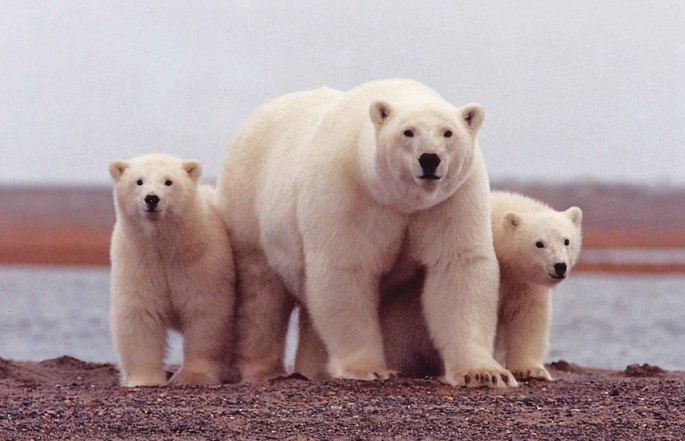On Thursday, the United States Fish and Wildlife Service has announced that they are carrying out a plan to save the world's polar bears.
Nonprofit organizations including stakeholders from public and private sectors have created a plan called the Draft Polar Bear Conservation Management Plan that will be officially submitted this week. More importantly, the plan will also focus on significant efforts to reduce greenhouse gas emissions.
Polar bears are already included under the Endangered Species Act since 2008 due to Arctic warming which causes massive habitat loss due to melting sea ice.
This proposal not only focuses on significant reduction of man made pollution but it also aims to help the bears to lessen their exposure to dangerous environmental events such as oil spills and also keep them away from human interference that can later result in conflict. Since bears are now spending most of their time hunting for food on land, they are now more prone to human conflict.
In 2008, a scientific model was created that was revised in 2010 that shows the drastic change in polar bear populations. The updated model now included greenhouse gas emissions where one scenario predicts that global warming will plateau by the middle of the century and another scenario shows that emissions will still continue to increase either way, affecting the polar bear population, causing a significant decline by 2050.
According to the Fish and Wildlife Service, if greenhouse gas emissions were to stabilize at lower levels, the polar bears can survive longer.
Not only are the polar bears losing their habitat with rapid ice melting, there's also a shortage of food for them where ringed seals are also suffering population decline. This in turn forces the bears to swim at great distances to hunt for prey where they experience malnutrition, losing their winter fat reserves.
The polar bears may soon cease to exist where this draft could hopefully eliminate these harmful factors caused by man made pollution and preserve the bears' habitats for good, sustaining their homes and sources of food.
The draft is also a team effort for an action plan being devised by Canada, Denmark, Norway and Russia as well.



























